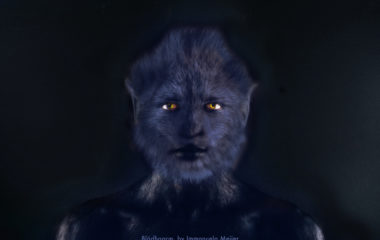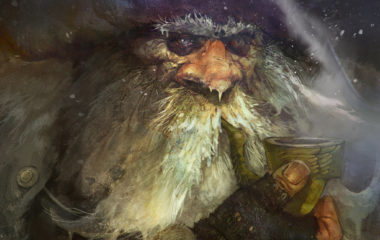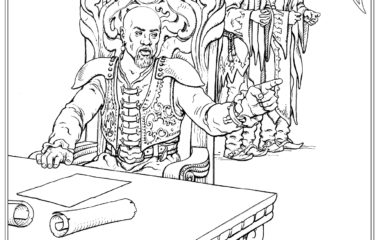
“ . . . he’s as balmy as a moonstruck fool on Midsummer Night Eve. But then everyone is, in one way or another.” ~ Angela about Orrin
Orrin is king of Surda, a member of the House of Langfeld, and a descendant of Thanebrand the Ring Giver and Lady Marelda.
He spent his childhood in Borromeo Castle under the watchful eye of his father, King Larkin. When Orrin became king, he continued surreptitiously supplying arms and supplies to the Varden army hidden in Farthen Dûr, as had his predecessors. Any who sought refuge from the Empire were welcome in Surda. Orrin dared not oppose Galbatorix openly, however. Despite looming pressure from the north, he was a fairly carefree ruler with a penchant for chemical compounds and scientific experiments in his laboratory.
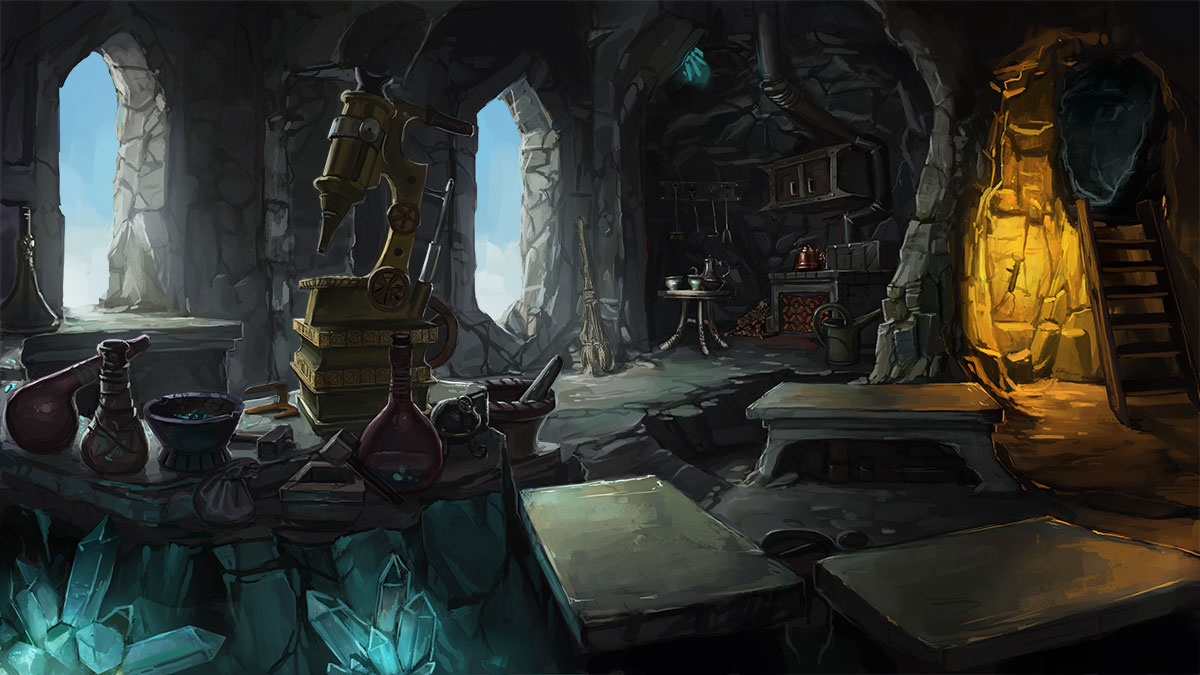
Time for War
When the Varden won the Battle of Farthen Dûr, Orrin gained confidence that direct confrontation with the Empire was not futile, especially with the assistance of Eragon and Saphira. He invited Nasuada and her troops to rally in Surda before setting out for the Empire, an invitation she accepted. He refused to appropriate supplies from his subjects to feed the Varden army and opened the Surdan treasury to pay for the goods. It was a noble edict but, because of dwindling funds and a sizable army, the Varden soon found food to be in short supply .
The weeks passed, and tensions increased on all fronts. It took longer than expected to rally Surdan nobles and soldiers to the cause. What’s more, left to his own devices Orrin most preferred to focus on his experiments. He was obsessed with his studies, his enthusiasm childlike. And his discoveries were not to be dismissed–for example, proving the existence of a vacuum, which solved one of the oldest conundrums of natural philosophy. In addition, he hoped to learn how to cast spells himself, if he had any aptitude and could find someone to teach him:
“The prospect that truly excites me, though, is of using magic to ferret out nature’s secrets. Why, just yesterday, with a single spell, Trianna helped me to discover two entirely new gases. Imagine what could be learned if magic were systematically applied to the disciplines of natural philosophy.” (Orrin, Eldest Deluxe, page 317)
These experiments were not always safe, as Nasuada discovered when he was injured in an explosion caused by mixing phosphorous and water in an enclosed space. He was more than a bit tickled to show her a neat side-effect of his still-healing ear drum:
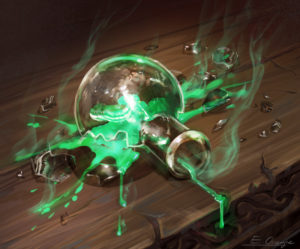
“Drawing on the pipe, he puffed out his cheeks until a tendril of smoke issued from his left ear, like a snake leaving its den, and coiled up the side of his head. It was so unexpected, Nasuada burst out laughing, and after a moment, Orrin joined her, releasing a plume of smoke from his mouth. “It’s the most peculiar sensation,” he confided. “Tickles like crazy on the way out.” (Eldest Deluxe, page 316)
The two quarreled when Nasuada grew irritated with his focus on what she felt were frivolous pursuits. They eventually came to a grudging truce: she understanding the benefit of setting aside some time for diversion and he for setting his mind to more serious matters.
“Before your Rider materialized fully formed from the ethers like Moratensis from his fountain, I expected to live my life as my father and grandfather before me. That is, opposing Galbatorix in secret. You must excuse me if it takes a while to accustom myself to this new reality.” (Orrin, Eldest Deluxe, page 318)
Their irritation erupted once again when he refused to lend more gold for food and still delayed rallying his army for the war. Some time later, Orrin was astounded, then irate, when Nasuada solved her financial issues by having her magicians construct high quality lace and selling it much cheaper than that produced by Surdan weavers.
This issue was set aside when news reached them of the Empire’s forces, estimated to be 100,000 men strong, marching south. Preparations to meet Galbatorix’s forces on the battlefield were expedited. Because of Nasuada’s prior experience with the Battle of Farthen Dûr, Orrin agreed she was the best candidate to lead the combined forces of the human Varden.
On the Battlefield
Many things happened prior to the Battle of the Burning Plains: Orrin was introduced to Eragon and Saphira, who had returned from training in Du Weldenvarden; the Urgals asked to join the Varden in revenge against Galbatorix; and Nasuada made the executive decision to accept their help without consulting Orrin—much to his displeasure. Angela the herbalist used Orrin’s laboratory equipment, which he had transported with him from Borromeo Castle, to brew enough poison to kill as many of the Empire’s troops as possible.
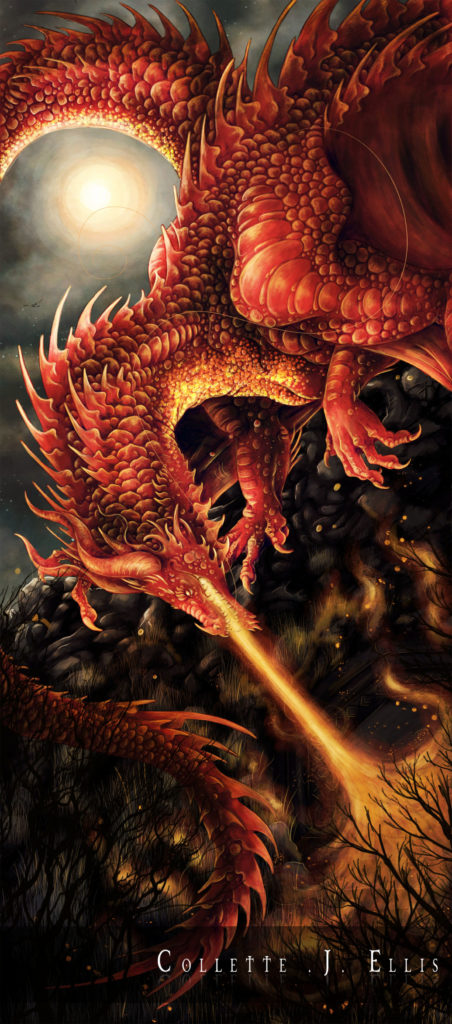
It was still a difficult fight. Orrin led his men into the fray, but it wasn’t until King Hrothgar of the dwarves arrived with his soldiers that the tide changed in the Varden’s favor. They did win, but not without heavy losses, including Hrothgar, who was struck down by a mysterious Rider astride a red dragon.
King Orrin grew resentful of Nasuda’s impulsive decision-making. A notable example was her participation in a Trial by Knives with Fadawar. Were she to lose, Fadawar would become the leader of the Varden; it was a disastrous prospect. Nasuada endangered the entire cause—and without consulting any of the other leaders. Orrin attempted to bribe Fadawar into releasing her from her oath, but to no avail, and later unsuccessfully tried again to stop the proceedings when it appeared Nasuada might die from her wounds. Fortunately, she won. Orrin respectfully reprimanded her for risking her life on a relatively minor partnership with the wandering tribes, especially since her death would have left the Varden in complete disarray. Nasuada unwisely belittled him for worrying, and he left in anger.
On some topics they agreed, however. Both were dismayed when Saphira, Roran, and Katrina returned from Helgrind without Eragon. Orrin welcomed Katrina, who had taken on an almost mythical reputation due to Roran’s devotion, and yet wondered how Eragon could be so foolish as to stay behind for mysterious reasons.
Fortunately, it wasn’t long before Eragon came back with Arya, who had gone on a solo mission to find him. The first task was to rally morale, so Nasuada and Orrin gave speeches lauding the brave deeds of Eragon and Saphira. Eragon later reflected on the king’s performance:
“His delivery was staid compared with hers, and while the crowd listened politely and applauded afterward, it was obvious to Eragon that however much the people respected Orrin, they did not love him as they loved Nasuada, nor could he fire their imagination as Nasuada fired it. The smooth-faced king was gifted with a superior intellect. But his personality was too rarefied, too eccentric, and too subdued for him to be a receptacle for the desperate hopes of the humans that opposed Galbatorix.
If we overthrow Galbatorix, Eragon said to Saphira, Orrin should not replace him in Urû’baen. He would not be able to unite the land as Nasuada has united the Varden.” (Brisingr Deluxe, page 230)
After the proceedings, Orrin demanded to know the reason for Eragon’s delay. Nasuada felt the king overstepped his boundaries, to which he responded:
“. . . if we are equals, I have yet to see evidence of it in your treatment of me. Eragon answers to you and only you. By the Trial of the Long Knives, you have gained dominion over the wandering tribes, many of which I have long counted among my subjects. And you command as you will both the Varden and the men of Surda, who have long served my family with bravery and determination beyond that of ordinary men . . . I am not ashamed to admit you have had more experience and success than I in waging war. Our prospects are too precarious for you, me, or any of us to indulge in false pride. However, since your investiture, you seem to have forgotten that I am still the king of Surda . . . You act as if yours was the only verdict of moment and the opinions of others are of no account, to be trampled over in pursuit of whatever goal you have already determined is best for the portion of free humanity that is fortunate enough to have you as their leader. You negotiate treaties and alliances, such as that with the Urgals, of your own initiative and expect me, and others, to abide by your decisions, as if you speak for us all. You arrange preemptive visits of state, such as that with Blödhgarm-vodhr, and do not trouble to alert me of his arrival, nor wait for me to join you so we might greet his embassy together as equals. And when I have the temerity to ask why Eragon—the man whose very existence is the reason I have staked my country in this venture . . . to ask why this all-important person has elected to endanger the lives of Surdans and those of every creature who opposes Galbatorix by tarrying in the midst of our enemies, how is it you respond? By treating me as if I were no more than an overzealous, overinquisitive underling whose childish concerns distracted you from more pressing matters . . . If you cannot bring yourself to respect my station and to accept a fair division of responsibility, as two allies ought to, then it is my opinion that you are unfit to command a coalition such as ours, and I shall set myself against you however I may.” (Brisingr Deluxe, pages 235-236)
This was the crux of Orrin’s resentment against Nasuada. She apologized. Eragon explained his actions at Helgrind in full, to secretly sentence the butcher Sloan for his crimes. Both Nasuada and Orrin approved of his decision to spare Sloan’s life, the king saying:
“We answer to the Gray Man on his gray horse. Death. We could be the worst tyrants in the whole of history, and given enough time, Angvard would bring us to heel. . . . But not you. Humans are a short-lived race, and we should not be governed by one of the Undying. We do not need another Galbatorix . . . You are so dangerous, we are forced to acknowledge the danger to your face and hope that you are one of the few people able to resist the lure of power . . . So, for all those reasons, and others besides, I agree with Nasuada. You were right to stay your hand when you discovered this Sloan in Helgrind. As inconvenient as this episode has been, it would have been far worse, and for you as well, if you had killed to please yourself and not in self-defense or in service to others.” (Orrin, Brisingr Deluxe, page 239)
A thousand Varden—including Orrin and his mounted troops—fought at the Battle of the Jiet River, facing several hundred laughing dead. Orrin suffered injuries under his left arm and a spear pierced his right thigh before their foes were eliminated. The Varden’s losses were much greater in number than those of the laughing dead.
Fear Changes a Man
Orrin’s wounds were more challenging to heal than expected, though he declined the aid of Eragon and other spellcasters in lieu of using his own trusted healers. Once well again, he returned to his duties and to battle when necessary. Those around him noticed a change in his character:
“In the short while since the Varden and the Surdans had launched their attack against the Empire, Nasuada had watched Orrin grow ever more serious, his original enthusiasm and eccentricities vanishing beneath a grim exterior. At first she had welcomed the change, for she had felt he was becoming more mature, but as the war dragged on, she began to miss his eager discussions of natural philosophy, as well as his other quirks. In retrospect, she realized these had often brightened her day, even if she had sometimes found them aggravating. Moreover, the change had made him more dangerous as a rival; in his current mood, she could quite easily imagine him attempting to displace her as leader of the Varden.” (Narrative, Inheritance Deluxe, pages 54-55)
Nasuada became better at including Orrin in the proceedings, which lessened the frequency of their disagreement but not their intensity. After losing a childhood friend in an attack attributed to the Urgals, Orrin asked Nasuada to break the treaty with them. She disagreed and recommended he rethink his position. Despite this tension, he was a good partner to problem-solve what to do with the Varden’s ever-increasing number of prisoners of war. Orrin also confided his growing doubts about whether the Varden could be victorious. Nasuada did her best to allay his concern, with limited success.
The Varden captured one city after another with the strategies that Nasuada, Orrin, and their advisors devised. But after the Battle of Dras-Leona, Nasuada was kidnapped by a raiding party led by Murtagh and Thorn.
Nasuada had designated Eragon as her successor, much to Orrin’s bitter disappointment. The king insinuated that the Rider needed to listen to his advisors, including the dwarves and elves, and then contradicted himself by implying Eragon’s allegiances were not with his own kind. Orrin’s passive aggression only ceased when King Orik interrupted and suggested they look at the grand scheme of things. It was then that Orrin explained his true concern: that they had no chance against Galbatorix. Though his reasoning was valid, everyone else present felt the right thing to do was proceed, regardless of the consequences, and so he acquiesced, a bottle of wine in hand.
Eragon later decided to follow mysterious clues leading to Vroengard in the hopes that he would find aid against Galbatorix. Most of the leaders were in favor with his plan, with the exception of King Orrin:
“ . . . [Orrin] expressed outrage at the prospect of either Eragon or Saphira traveling to Vroengard and railed at length against the idea. He questioned Eragon’s bravery, questioned the value of Solembum’s information, and threatened to withdraw his forces from the Varden if Eragon continued to pursue such a foolish, misguided course. It took over an hour of threats, flattery, and coaxing to bring him around, and even then, Eragon feared Orrin might go back on his word.” (Narrative, Inheritance Deluxe, pages 399-400)
Nevertheless, Eragon, Saphira, and Glaedr departed.
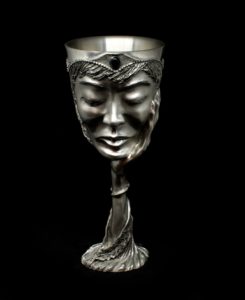
By the time the Varden arrived outside of Urû’baen. Orrin’s drinking had escalated and his behavior was increasingly erratic. He and Roran argued about sending an envoy to the city, which the latter thought was an exceedingly stupid and dangerous idea. Orrin stubbornly asserted that it was the “right thing” for royalty to do and became so enraged with Roran’s disagreement that he tried to kill him. Stronghammer deflected the blow and threatened that if the king sent an envoy, Roran would slay the messenger before he could reach the city gates.
Jörmundur spent the next while convincing Orrin not to send the envoy just to spite Roran. The Varden commander subsequently told Stronghammer that the war had changed the king from a reasonable man to one much less so and that Orrin was liable to retaliate in some way. Both Roran and later his cousin made sure Orrin knew there would be dire consequences if the king attempted to harm Roran or his family. Fortunately, there were no further incidents.
When Eragon, Saphira, and Glaedr returned from Vroengard, they summoned the Varden leaders to a secret meeting. Once all, Orrin included, were sworn to secrecy, the Rider revealed their secret weapon: over one hundred Eldunarí from the Vault of Souls. Now there was finally a chance of defeating Galbatorix. Orrin was angry that he had not been informed of the existence of Eldunarí before, as Nasuada had:
“So once again the two of you chose to ignore me. Without the support of my men and the food of my nation, the Varden would have had no hope of confronting the Empire. I’m the sovereign ruler of one of only four countries in Alagaësia, my army makes up a goodly portion of our forces, and yet neither of you deemed it appropriate to inform me of this!” (Inheritance Deluxe, page 590)
Orik interjected, “They did not tell me about it either, Orrin . . . And mine people have helped the Varden for longer than yours. You should not take offense. Eragon and Nasuada did what they thought was best for our cause; they meant no disrespect.” (Inheritance Deluxe, page 590)
Even Orik’s words did not mellow Orrin. But preparations for the next day’s conflict demanded attention, so his surly behavior was the least of anyone’s worries.
During the Battle of Urû’baen, Orrin took a bolt to the chest, an injury that even the elves weren’t sure they could heal. But he did survived, the Varden won, and Galbatorix was no more.
The Future of Surda
So who would become the new leader of the Empire? It came down to either Nasuada or Orrin, and both refused to give up their claim. For Orrin it was a matter of deservedness and jealousy.
“The only way I can see to resolve the matter without bloodshed is for you to renounce your claim. If you insist upon pursuing it, you will end up destroying everything we have won today, and you will have none to blame but yourself for the havoc that will follow . . . My people have housed, fed, and equipped the Varden. They have fought and died alongside your warriors and, as a country, we have risked far more than the Varden. The Varden have no home; if Galbatorix had defeated Eragon and the dragons, you could have fled and hid. But we had nowhere to go other than Surda. Galbatorix would have fallen upon us like a bolt from on high, and he would have laid waste to the entire region. We wagered everything—our families, our homes, our wealth, and our freedom—and after all that, after all our sacrifices, do you truly believe we will be satisfied to return to our fields with no other rewards than a pat on the head and your royal thanks? Bah! I’d sooner crawl. We’ve watered the ground between here and the Burning Plains with our blood, and now we’ll have our recompense.” (Inheritance Deluxe, pages 754-755)
Orrin threatened to attack the Varden to secure the throne, confident that the non-human leaders present would not dare influence the proceedings. He was soured to discover that, while they would not presume to weigh in on who the humans’ next king or queen should be, they would consider any attack on the Varden as an attack on themselves and respond accordingly.
Next, Orrin asserted that Eragon was still the leader of the Varden, and so an attack on Nasuada herself couldn’t be considered an attack on the Varden in general; Eragon immediately ceded leadership back to Nasuada, which he thought had already happened by default when she was rescued during the Battle of Urû’baen.
“Why is it that, in every dispute, you side with her?” Wine sloshed over the rim of his goblet as he gestured toward Nasuada. “Why is it that she commands your respect, and not I or the people of Surda? Always it is Nasuada and the Varden you favor, and before her, it was Ajihad.” (Orrin, Inheritance Deluxe, page 756)
Nasuada offered that if she were to become high queen of the new empire, she would double Surda’s lands and he would continue to rule his homeland as he saw fit; in exchange, Orrin would be required to swear allegiance to Nasuada as high queen, contribute men and materiel to the defense of their combined territories (as would Nasuada for Surda), and agree to follow her rules regarding magic users.
He was still resistant for unclear reasons.
“None of you would understand. You are too bound up in your own importance to see. How could you, when you’ve never experienced what I have?” (Orrin, Inheritance Deluxe, page 759)
Orrin finally relented when he realized his position was truly untenable. If he attacked the Varden, he would also be at war with the Urgals, dwarves, elves, and werecats. Nasuada would not back down, and she offered a just reward for the contributions Surda had made during and before the war. He relented after negotiating a bit regarding which lakes and towns would become part of his homeland.
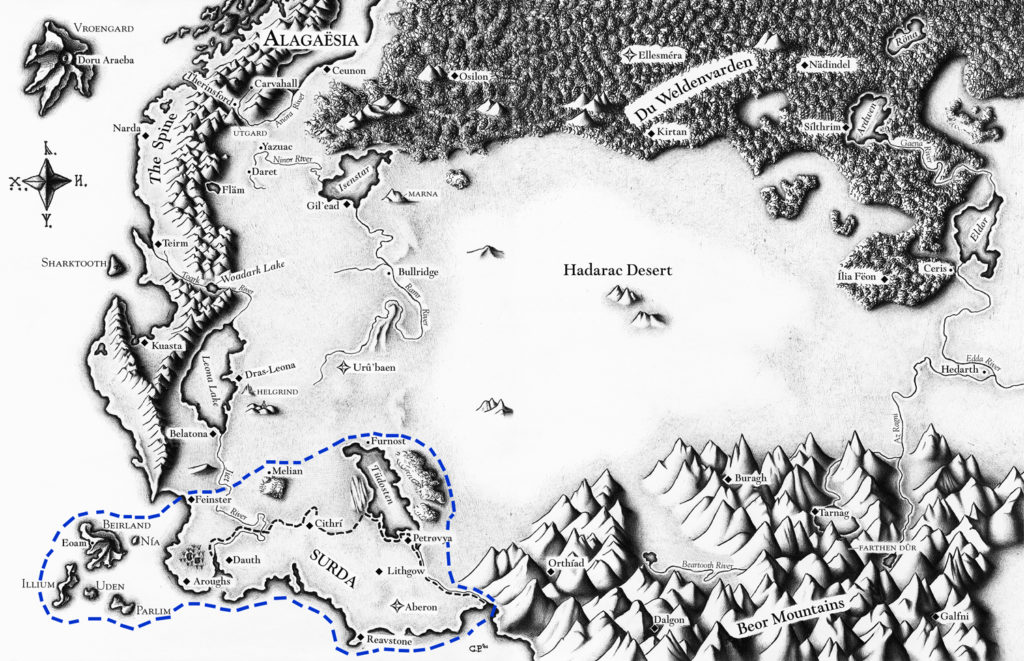
Nasuada later worked with Orrin to come up with the rules and regulations for magic users. Barring this, readers do not know what happened to the king of Surda in the months following the events of the Inheritance Cycle. Did he continue to spiral into his alcoholism and self-pity? Will he return to his whimsical experiments in the laboratory? Will he ever be the same pre-war Orrin many miss? Time will tell.
Description:
“From the depths of the tangled piles of glass emerged a rather tall, handsome man with shoulder-length hair held back by the gold coronet resting upon his head. His mind, like Nasuada’s, was protected behind walls of iron; it was obvious he had received extensive training in that skill. Orrin seemed pleasant enough to Eragon from their discussion, if a bit green and untried when it came to commanding men in war and more than a little odd in the head.” (Narrative, Eldest Deluxe, pages 590-591)
“Orrin was not unpleasant to look at. His nose was high and thin, but his jaw was strong and his mouth was finely carved and expressive. Years of martial training had given him a pleasing build. That he was intelligent was without doubt, and for the most part his personality was agreeable.” (Narrative, Inheritance Deluxe, page 55)
Enjoyed this article and want more? Check out the rest of the Encyclopedia Alagaësia series!


